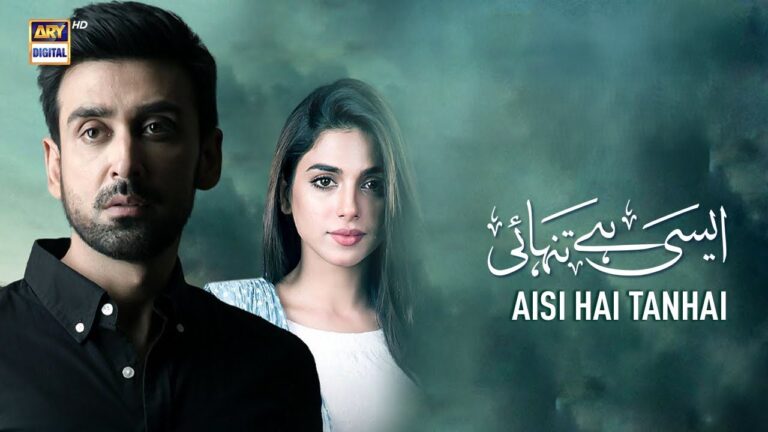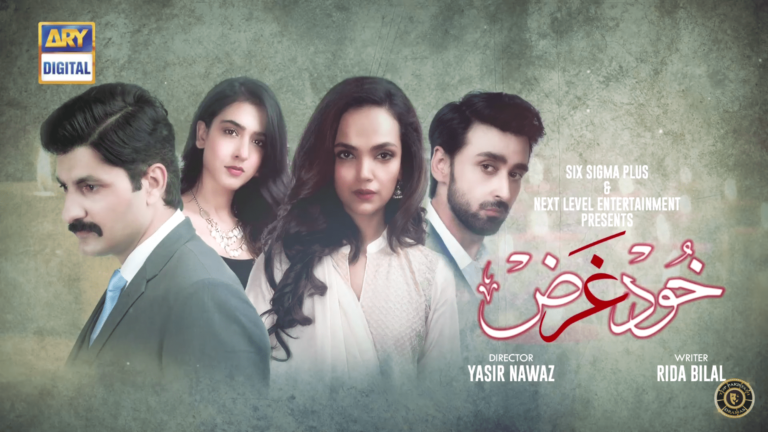“Mein apni bachion ko aurat hona oonkey leeye kabiley fakherho na key kabiley nadamat ho”
I think I realized around episode 18 that there was not going to be any kind of conventional happy ending and the promos had actually been quite accurate. Last week’s episode saw Murad rushing to Umama and the children’s rescue when his daughter Nimra is run over by a motorbike. He insists on spending the night, buys groceries and makes the usual promises and apologies to Umama. The children are so excited to see their father, their innocent excitement at riding to school in his car and eating a proper breakfast after so many days was adorable. It takes Murad no more than a few minutes to break their poor little hearts when a hysterical Deeba Baji arrives threatening him with divorce. He almost immediately surrenders to Deeba’s wishes and allows himself to be dragged from the house. As Umama sits with her weeping children on the doorstep of the house she comes to a decision: that she cannot allow her girls to go through this emotional torment again and again.
Deeba Baji, she may be a couple of sandwiches short of a picnic but at least you know where you stand with her. I loved her conversation in the car with Murad reciting all the Ehsaan she had done for him. Money, sons, you name it Deeba Baji has given Murad her best. Humans as in Homo sapiens cannot consciously choose the gender of the children they conceive; the deciding factors are basically a throw of the genetic dice and the will of our creator. So either Deeba Baji is of a different species or she claims to possess powers usually ascribed to the divine.
I am not sure I liked the turn in the narrative at this point. Murad and Deeba find out that their sons suffer from severe mental developmental problems and which will only increase as they grow older. I wish writers would not use these diseases and illnesses as a sign of divine retribution. There are plenty of good people out there whose children and relatives may suffer such ailments and there is no need to add to their burden by stigmatizing them even more. I was not impressed by the now penitent Deeba’s request to Murad to bring back Umama and her daughters. Again there was an essentially selfish motive behind even that sudden reversal. I was even less impressed by Murad’s little condemnation of her, as if she acted alone and he was just a passive bystander. Deeba had little or no connection with Umama or her daughters but Murad certainly did.
Some of the best scenes had to be of Umama finally taking control of her life by ignoring Murad, completing her studies and renting out a portion of the house her father left her. In the final scenes we see Murad begging her to return but she refuses. Quite rightly she wants her daughters to grow up with the sense of self-worth and self-respect that her father (Mr. Haseeb) and then Murad had continually denied Umama.
Mehar Bano has been the core of this entire serial, despite being a novice she has given a remarkable performance. This was a long serial and mostly oriented towards the female lead, which had to grow from a protected, young girl to a mature mother of four children. Despite her extremely young age she managed to carry it off, though it was sometimes strange to watch her beautiful, unlined face pronouncing such sad, world weary dialogues. Sana Askeri was superb as the obsessive Deeba Baji and I feel like giving a round of applause to her for bearing the brunt of the audience’s anger at her character. I am not so sure about Fahad Mustapha. He is generally a good actor and in most of the serial was very convincing, sometimes brilliant but the last scenes of him wandering in the rain in supposed misery just seemed strange. His hair, his clothes are so perfect it was hard to connect them with the miserable expressions on his face.
Talha Mufti also managed to do a great job maturing from a cad to nice, sensible uncle. Before I am accused of not recognizing people again J yes I realized the young Doctor who gave the bad news to Murad and Deeba was Sarmad Khoosat himself doing a cameo. I really want to thank him and the entire Daagh crew for making this such a compelling, well-crafted drama despite its rather sad and predictable theme. Sarwat Nazir the writer did not disappoint either. I am really glad that she did not allow Umama to return to Murad, who ultimately did not deserve her. Those dialogues about teaching her daughters to value themselves as women and individuals were well worth hearing.
Having said that, I am really not sure why this drama was so long, it could have easily been wrapped up at around episode 18 or 19. There was really no knew revelation or development in the narrative. Another query I have is what is the deal with those pictures of Deeba in a hijab? We don’t see her in hijab in any scenes, was the serial even longer and those parts have been cut? All in All I cannot say that such an intense drama was enjoyable but it was absorbing and so gripping I used to wait for it every Friday without fail, hoping for something better for Umama. I think that is really the secret of any good drama: that we, the audience, find some connection, some level of empathy with the characters.
Written by Sadaf
bsite and its content is copyright of Dramapakistani.net – ©Drama Pakistani 2011. All rights reserved.






 Watch our full
Watch our full 




 Leech trailer is here!
Leech trailer is here! 



